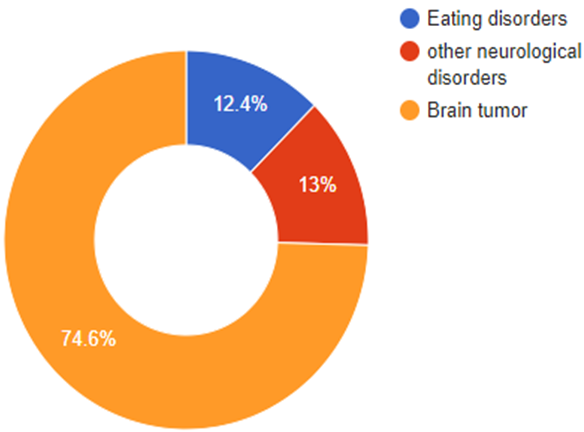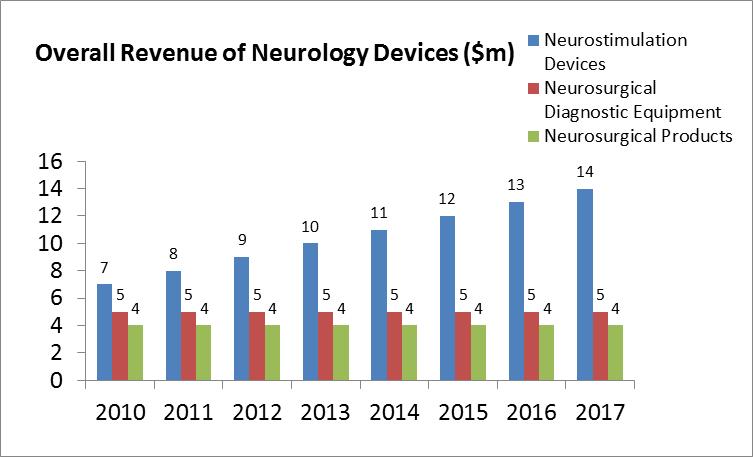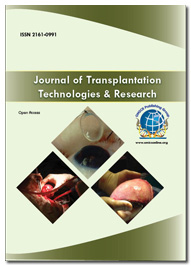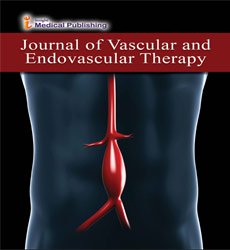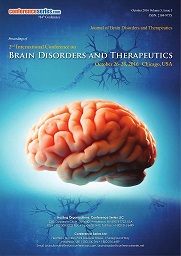BRAIN WEBINAR 2020
The scientific committee of this upcoming virtual conference would like to welcome authors from different corners of the world to submit their abstracts/ articles, which can be presented by the author itself in this webinar sessions and accepted abstracts/ articles will be published in the supporting journals.
"BRAIN 2020" would like to thank its editorial management and committee members for their meaningful suggestions to make this conference a global webinar, which will gather many researchers, students, industrial delegates and doctors globally to find out peer researches and innovative skills and to gift those meaningful certifications and awards for their relevant research skills.
(Abstract publication preference will be given to the early submitted abstracts and registered participants)
For more info: [email protected]
This International meeting is establishing an effort to make possible interactions among world-wide leading scientists, research scholars, Health Care professionals, Neurosurgeons, young researchers from different parts of the world to exchange their knowledge and conduct symposia, show experiments with new innovative techniques that disseminate information about clinical tradition, best practices, skills and knowledge in the field of neurology, neuroscience, Psychiatry. In World Brain Congress 2020, international symposiums, B2B meetings, international workshops will also be organized to discuss the specific topics in the field of neurology.
Target Audience:
-
Neurologists and Directors
-
Physicians
-
Neuroscientists
-
Specialists
-
Researchers
-
Healthcare professionals
-
Professors
-
Industrial Experts
-
Neurosurgeons
-
Psychiatrist
-
Nutritional Scientists
-
Lecturers and Students from Academia in the study of Dementia
-
Students from Academia in the research of Neurology
-
Neuro Physiotherapists
Networking and Discussions
We are pleased to welcome you to the Middle East Brain Congress 2020 (MEBC 2020) to be held during December 07-08, 2020. Brain Congress 2020 will be a gathering of Neurosurgeons, Neuro specialists’ researchers, scholars, academicians, practitioners, delegates, students and business personals to present all the updates in brain research & neuroscience. Join with us to learn, share and listen to the experts about their recent outcomes and their future expectation.
Learn and share through Online Workshops and Interactive Sessions
Workshops and interactive sessions involve extensive interaction between the presenters and delegate around an idea or hands-on experience of a practice. These interactive sessions may take the form of a panel, staged conversation or debate – all involving substantial interaction with the participants. Therefore a variety of sessions, keynote lectures, symposium, and workshop and poster presentation will give you an opportunity to share and present research to your colleagues from around the world.
Meet your subject matter experts Online
Subject Matter Experts will lead you in current research & development. They help you in research queries, content, identify the objectives, and ensure your research scientifically acceptable.
Virtual Networking/ discussions
"Brain 2020" has its specially designed networking and round table discussion session, which brings together the clinicians, health professionals, and patients on the front lines of psychiatric care to learn from each other and build professional network and collaboration.
The brain is the complex structure of the body, which is the master organ and control center. Irritation within the brain can lead to issues such as vision misfortune, shortcoming and loss of motion, and Misfortune of brain cells, which can influence your capacity to think clearly. Brain tumors can moreover impact on nerves and influence brain work. Agreeing to the Brain Injury Association of America within the U.S., each year approximately 2.6 million individuals have a few sort of brain harm whether as a result of injury, stroke, tumor or other sicknesses. Neuro inflammation is the root cause of a few disarranges of the central anxious framework, but it has driven to numerous misinterpretations in inquire about and clinical approaches. It is presently recognized that neuro inflammation in inveterate neurodegenerative conditions is common in numerous infections counting Alzheimer's illness and age-related dementia.
A century ago, the only way to make a high-quality prognosis for many neurological disorders is by doing the post-mortem or autopsy. But a long time of innovative inquires, research, and the change of procedures that allow researchers to utilize precise instruments to analyze ailment and to check how pleasantly a specific treatment can be working. These propels allow doctors to simultaneously analyze the structure of the brain as well as the alterations in brain intrigued as they happen. Analysts and doctors utilize an assortment of demonstrative imaging methods and chemical and metabolic investigations to identify, oversee, and treat neurological infection. A few strategies are performed in specialized settings, conducted to decide the nearness of a specific clutter or variation from the norm.
Neurosurgery is the surgical specialization that treats infections and disorders of the brain and spinal rope. Back pain can in some cases deliver neurological side effects such as deadness, muscle shortcoming and misfortune of bowel and bladder control due to brokenness at the nerve root. These side effects are pointers that neurosurgery is required to treat the basic cause of back pain as restricted to conservative medications. Methods to treat back torment beneath the domain of neurosurgery incorporate discectomy, laminectomy, and spinal combination surgery.
In Neurosurgery, there is a higher risk of further nerve damage and infection which may result in paralysis. Neurological devices can help diagnose, prevent, and treat a variety of neurological disorders and conditions such as Alzheimer’s disease, Parkinson’s disease, major depression, epilepsy, spinal cord injury, and traumatic brain injury. Neurological devices can be used to help restore hearing and sight and provide an increased function for those with limb loss or congenital limb differences. Examples of neurological devices include Neuro diagnostics, neuro-interventional, and Neurostimulation devices. The FDA’s Center for Devices and Radiological Health works with manufacturers and developers to support innovation and bring patients in the US access to safe and effective medical devices first in the world. It also conducts regulatory research regulatory research to support the development of medical devices and monitors the safety of devices on the market. The FDA is working to enhance the transparency and predictability of the regulatory process for developers and innovators of neurological medical devices
Degenerative nerve diseases affect many of your body's activities, such as balance, movement, talking, breathing, and heart function. Many of these diseases are genetic. Sometimes the cause is a medical condition such as alcoholism, a tumor, or a stroke. Other causes may include toxins, chemicals, and viruses. Sometimes the cause is not known. Degenerative nerve diseases can be serious or life-threatening. It depends on the type. Most of them have no cure. Treatments may help improve symptoms, relieve pain, and increase mobility.
Neurology nursing is the field of nursing with a focus on the utmost care of the critically ill or unstable patients following extensive injury, surgery or life-threatening diseases. Critical care nurses can be found working in a wide variety of environments and specialties, such as general intensive care units, medical intensive care units, surgical intensive care units, trauma intensive care units, coronary care units, cardiothoracic intensive care units, burns unit, pediatrics and some trauma center emergency departments. These specialists generally take care of critically ill patients who require mechanical ventilation by way of endotracheal intubation and/or titratable vasoactive intravenous medications.
Aging causes a slow deterioration of the brain function leading to cognitive decline, memory loss, movement disorders and finally to functional decline and death. With a rapidly increasing aging population, neurodegenerative diseases such as Alzheimer′s, Parkinson′s, and Huntington′s become an important economic burden on the society. Unfortunately, there are no effective current therapies. Therefore, it is quite urgent to find strategies that will lead to therapeutic benefits for the patients. Since aging is the major risk factor for the age-related neurodegenerative disorders, interfering with age-related molecular mechanisms or pathways might be an avenue to develop new therapeutics.
The study of nature and origin of the brain which also concerns with the functioning of the nervous system, often using electrophysiological or molecular biological tools deals with Neuro Physiology & Neuropharmacology.This is the subspecialty of both the physiology and Neuroscience as different regions of brain constitute signals to different parts of the body. This topic could give a detailed description of the revolutionized anatomy of the nervous system, the motor response control system, thought processing and memory management system. Discussions can also be made in neuromuscular physiology, neural mechanisms of higher nervous activity and contemporary problems of Neuroscience can also be conferred. It features board investigations in the Neuropathology and interdisciplinary departments of Neuro-ophthalmology, Neuropathology. It is admirable to discuss the understanding of the nervous system which has led to the development of drugs and many novel medications. These are broadly classified into molecular and behavioral systems that are ahead of our imagination that has continued to rise with an increase in drug specificity and sensitivity. Many novel approaches are made for the treatment of neural disorders, synaptic spasticity, drug delivery in cell signaling system and the latest neuropharmacological therapy and drug development in the specific area.
Case report guide in the recent years has seen a significance & value in the field of clinical medicine. Not all areas of medical studies are amenable to huge scientific trials. Many topics are higher addressed by more precise descriptions of multi-factorial additives that make contributions to effects, and those are regions where case reports determines the suitability of a case for publication calls for background studies and dialogue. Writing a case or collection reinforces many aspects of the medical training process, and house body of workers is advocated to analyze, write, and put up reports. The scientific network advantages in lots of approaches from case reviews, from improving person patient care to guiding destiny research instructions.
Neuroradiology highlights the present topic of cardiac afferent mechanisms that are responsible for cardiovascular reflexes as well as the efferent motor neurons. A great deal of research has been going on to delineate the neuroanatomical and functional organization of the autonomic nervous system which controls cardiac function. A comprehensive mechanism of the neurons that are innervating the heart in normal, diseased state is Neurological Cardiology. A succinct overview of neuron regulates the heart and results in some major clinical conditions such as arrhythmias and heart failure.
The Central Nervous System is denounced to various malevolent disorders. Central Nervous System covers its mechanism, Metastatic pestilence, Ramification, Cancers, Neurons and Sensory Receptors, Neurological Disorders, Multiple sclerosis and Imaging agents to CNS neurofibroma. Cancer spreads to the Nervous System by direct invasion or compression from continuous tissues relates to the proximity of the Nervous System to other structures. Global Central Nervous System Drugs market to grow at a CAGR of -3.2% over the period 2011-2015. The global central nervous system (CNS) therapeutics peddle has been forecast to reach US$133 billion by the year 2018, which increases in disease ubiquity rates due to increase in population, the introduction of new drugs, and increased outgo on healthcare. Brain Tumor occurs when abnormal cells from within the brain. The symptoms of Brain stem tumors vary greatly and can include Ataxia, Cranial Nerves, Palsy, headaches, problems with speech and swallowing, hearing loss, weakness, Hemiparesis, vision abnormalities, ptosis, and behavioral changes. Another possible symptom is vomiting. Any brain tumor is inherently serious and life-threatening because of its invasive and infiltrative character in the limited space of the Intracranial Cavity.
Neuropsychiatry is the combination of Psychiatry and Neurology that deals with mental disorders, which in most cases can be shown to have their origin from an identifiable brain malfunction. Psychiatrists have laid claim to illnesses of the mind. Major Neuropsychiatric Conditions include the following: Addictions, Childhood, and development, Eating disorders, Degenerative diseases, Mood disorders, Neurotic disorders & Sleep disorders.
This provides an understanding of psychological knowledge in several inter-related domains concerned with the biological bases of behavior. Emphasis will be laid on basic experimental science from analysis of synaptic events, brain lesion studies, brain activity scans, and clinical studies. The relationship between cognitive, emotional, behavioral, neurological and physiological processes will be examined and how these processes might differ between individuals focusing on State and Trait Anxiety, Externalizing vs Internalizing Personalities, and Aging. Behavioral Neuroscience explores the role of the nervous system in normal and abnormal behavior, thought and emotion.
Molecular brain research is a rapidly expanding research field in which integrative approaches at the genetic, molecular, cellular and synaptic levels yield key information about the physiological and pathological brain. These studies involve the use of a wide range of modern techniques in molecular biology, genomics, proteomics, imaging, and electrophysiology. Molecular Brain Research is a special section of Brain Research which provides a medium for the prompt publication of studies of molecular mechanisms of neuronal synaptic and related processes that underlie the structure and function of the brain. Emphasis is placed on the molecular biology of fundamental neural operations relevant to the integrative actions of nervous systems.
Neuro-Immune Disease refers to illnesses that are the result of acquired deregulation of both the immune system and the nervous system. Symptoms may include mild to severe cognitive impairment, disordered sleep, severe headache; swollen lymph nodes a sore throat; painful nerves, joints and or muscles and unusual fatigue. Challenges to the immune system can trigger a severe relapse or worsen of existing symptoms. Neuroimmune disorders are characterized by inflammatory deregulation within the nervous system. The current issue will harvest developing research in this field.
Neurotology is a branch of otology concerned with those parts of the nervous system related to the ear, especially the inner ear and associated brainstem structures also called oto-neurology. Otology generally refers to the treatment of middle ear disease and resultant conductive hearing loss, whereas neurotology refers to the treatment of inner ear conditions, or hearing and balance disorders. In this section, we will discuss Vestibular neuronitis, Facial nerve paralysis, Hearing loss and deafness, Labyrinthectomy, Vertigo, Perforated eardrum & Neuro Otolaryngology.
-
Vestibular neuronitis
-
Facial nerve paralysis
-
Perforated eardrum
-
Neuro Otolaryngology
-
Sensorineural hearing loss
-
Acoustic Neuroma
-
Balance Disorders and Vertigo
-
Cochlear Implants
-
Cholesteatoma
-
Chronic Otitis Media
-
Ear Canal Disorders
-
Facial Nerve Disorders
-
Otosclerosis
-
Perforation of the Eardrum
Cognitive brain research refers to the action or process of acquiring knowledge and understanding things through the experiences and senses, which covers thinking, knowing, remembering, judging and problem solving.
Some of the major scientific research topic includes:
-
Challenges to the detection of psychological states and intentions via neurophysiological activity
-
Neuropsychopharmacology
-
Functional neuroimaging etc.
Brain is the central organ of the body, starting from processing all our inputs by senses and determining our action towards the input. But how far genetic variations and mutations harm a brain by causing neurodegenerative diseases and brain developmental disorders? Many clinical studies have reported these diseases as autism, bipolar disorder, Schizophrenia etc. These disorders have few medications and therapies, which can be handled by some mental health specialists/ experts. But proper research and novel drug development can inhibit the synthesis of mutated proteins which can save us from maximum disorders.
Unlike, cardiovascular and cancer diseases, neurodegenerative disorders have very less treatments and are not curable as well. Neurodegenerative disorders involve death of certain parts of the brain, which affects to our balance, movement, talking, breathing and heart function as well. Mostly these disorders are genetic disorders and that is why, there is no guarantee of its treatments and curable drugs. Some of the severe and incurable diseases are Parkinson’s disease, Alzheimer, Huntington’s disease, Bell’s plasy, Epilepsy, Multiple sclerosis etc. Most importantly some data says, around 130 billion dollar is being spent every year for different purposes to cure dementia patients in Europe and the increasing rate of these neurodegenerative diseases is very high as compared to other form of diseases and around 130 million people will be affected by dementia till 2030 as per a survey report done by various trusted brain and Neruo research organizations. The main challenge to discover a neurodegenerative drug is to focus on the target nerve cell recovery and to build a tendency to re- function the damaged part.
Many doctors are working to learn about the more relevant pathways to cure brain tumor and to find out best treatment procedures to provide best care to the patients diagnosed with brain tumor. Some of the best research occupied fields include:
-
Enhanced imaging test
-
Biomarkers
-
Immunotherapy
-
oncolytic virus therapy
-
Targeted therapy
-
Blood- brain targeted disruption
-
New drugs and combination of drugs
-
Gene therapy
-
Genetic research
-
Supportive care
